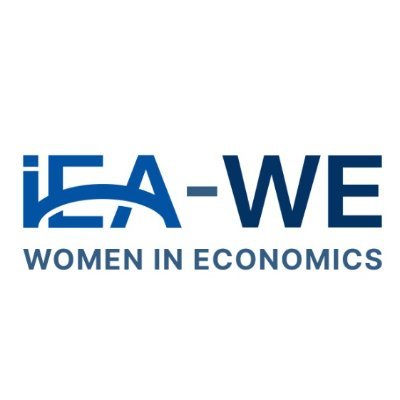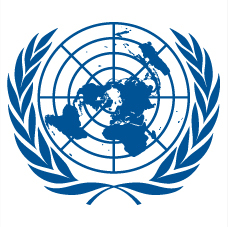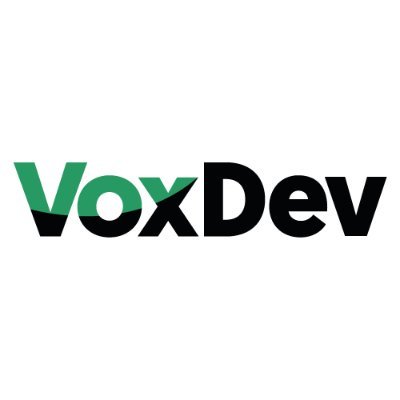
International Economic Association - Women in Econ
@iea_we
Followers
816
Following
517
Media
102
Statuses
899
Women in leadership in Economics initiative aims to enhance the role of women in economics through research, building partnerships, and amplifying voices
Joined June 2023
📢 Exciting News 🌐 You can access a treasure trove of insightful articles published through @IEA_economics IEA-WE initiative on our website 📚 ✨ Dive into diverse perspectives and amplify women's voices🚀 #EconTwitter #WomeninEcon Follow us for more ⚡️ https://t.co/XECfDniqZJ
1
9
17
Women in Econ in #India This research is part of IEA’s evidence based program spanning Argentina, Colombia, Ghana, India, Mexico & South Africa - building global understanding of gender disparities in Economics Follow along for more country-insights ➡️ https://t.co/xmBK4gNe1c
0
0
0
Women in Econ in #India Policy Implications ➡️ The data points to institutional-level interventions needed: mentorship programs, childcare support, equitable administrative duties, and bias-aware evaluation processes Evidence-based solutions required.
0
0
1
Women in Econ in #India CONFERENCE: ISI conference data (2004-2024) shows gradual improvement in women’s participation, especially in mixed-gender authored papers (now 33% vs historical ~25%). Progress is slow but measurable. https://t.co/B7zdLm4jc5
0
0
1
Women in Econ in #India PhDs: Women’s share in Economics PhD programs rose from 35% (2011-12) to 50% (2021-22) - dramatic improvement over a decade. But this hasn’t translated to faculty gains yet. https://t.co/B7zdLm3Lmx
0
0
0
Women in Econ in #India UNDERGRAD: Limited data shows huge institutional differences - Delhi University (61% women) vs Tamil Nadu Open University (32%) vs Dr BR Ambedkar University (38%) for 2019-2020 Context and institutional culture matter enormously.
0
0
0
Her work continues to spotlight inclusive economic development — read her @ProSyn article with @iea_we here -
project-syndicate.org
Nkechi S. Owoo explains what is needed to protect and empower one of the world’s most vulnerable demographic groups.
0
0
1
Proud moment! @IEA_economics Featured Economist Nkechi S. Owoo, has been promoted to Full Professor of Economics, becoming the first female economist to reach this rank at the University of Ghana @UnivofGh @nkechi_owoo⚡️ read her interview ➡️ https://t.co/2zxROHmJVd
1
4
5
Delighted to see our recent article by @elisabelfiori with @vox_dev featured by @UNDRR! A must read to gain insight into climate adaptation in #Argentina ✨
A timely update of disaster risk reduction 🗞 news and 🔬 research – punctually dispatched by the #PreventionWeb editors. ➡️ https://t.co/KYHIgjjJXo 👣Follow 👍Like 🔔Subscribe 🗨️ Comment
0
1
2
Women in Econ in #India STUDENT SUCCESS: Women’s completion rates often exceed enrolment rates at Master’s level, suggesting better retention among female students who enter Economics programs. The issue isn’t academic performance. https://t.co/B7zdLm4jc5
0
0
0
Women in Econ in #India METHODOLOGY: The researchers used name-matching algorithms (80% threshold) + manual verification to identify gender across 2653 faculty, 5664 conference participants, and 518 journal authors. Rigorous methods for robust findings.
0
0
0
Women in Econ in #India DATA COLLECTION: No centralized database exists for Indian faculty data. The research team manually compiled info from 402 institutions across all university types. Better data infrastructure needed for gender monitoring.
0
0
0
Markets, marriage, and norms: Understanding female labour force participation in India Last month on VoxDev w/ @iea_we, Farzana Afridi (Indian Statistical Institute, Delhi) reflected on the evidence on female labour force participation in India:
voxdev.org
Despite recent gains due to rural self-employment, India’s female labour force participation remains constrained by entrenched social norms and a limited availability of quality jobs – keeping the...
0
1
7
Carbon pricing can burden low-income women who lack affordable energy alternatives. Even climate policy has gendered impacts that economic models routinely overlook. @NavikaMehta writes for @voxeu ➡️
cepr.org
Economic research often treats tools such as tariffs, subsides, interest rates, monetary policy, and austerity measures as gender neutral. This column argues that when sex-disaggregated data and...
0
0
0
Women in Econ in #India THE PARADOX: India has achieved gender parity in Economics PhD enrolment (approaching 50%) - unlike many Western countries - yet faculty representation remains at 35%. Cultural factors matter more than pipeline issues.
0
0
1
Women in Econ in #India DISCIPLINARY COMPARISON: Economics faculty (35% women) outperforms STEM fields (16.7% average) but lags behind other Social Sciences significantly. The math-intensive hypothesis doesn’t fully explain Economics’ gender gap. https://t.co/B7zdLm3Lmx
0
0
0
Women in Econ in #India CONFERENCE PATTERNS: At major Economics conferences in India, women’s participation hovers around 30-33%. The ISI conference (20 years of data) shows persistent underrepresentation despite growing female student numbers. https://t.co/B7zdLm4jc5
0
0
0
Women-led firms aren't less profitable or riskier than male-led ones, yet they face credit discrimination leading to capital misallocation. Financial markets aren't meritocratic—they're biased. Writes @NavikaMehta for @voxeu @iea_we
cepr.org
Economic research often treats tools such as tariffs, subsides, interest rates, monetary policy, and austerity measures as gender neutral. This column argues that when sex-disaggregated data and...
0
0
1
Women in Econ in #India CITATION DISPARITY: Male academics average 596 citations vs 300 for women. The gap is most pronounced among junior faculty, suggesting early career disadvantages compound over time. Data from 2635 faculty across 402 institutions. https://t.co/B7zdLm4jc5
0
0
1




